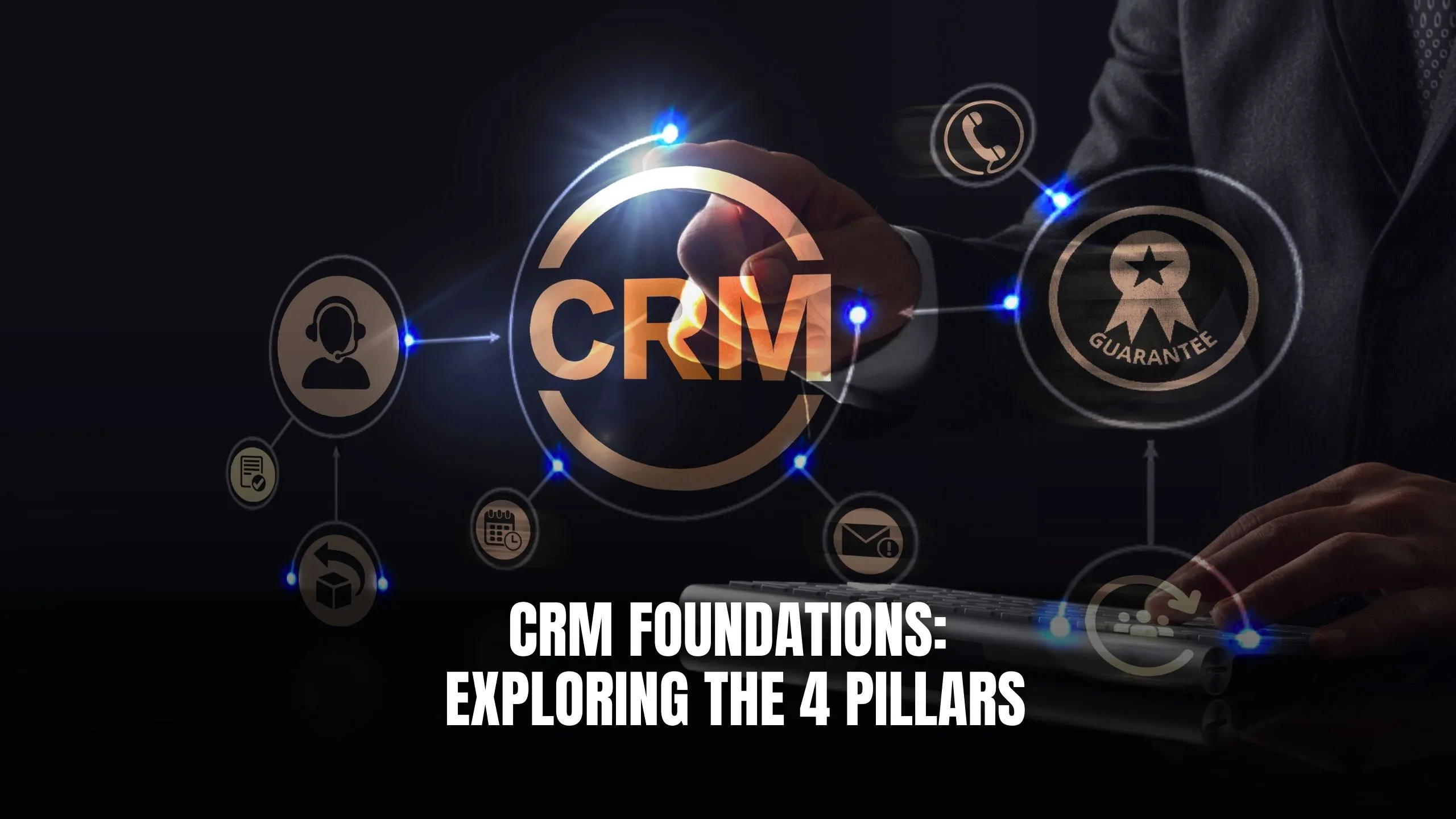CRM Foundations: Exploring the 4 Pillars
- Proposal Software Customer Relationship Management


CRM Foundations: Exploring the 4 Pillars
Customer Relationship Management (CRM) is the cornerstone of successful businesses, guiding interactions with customers and driving growth. Understanding the four pillars of CRM is essential for businesses aiming to cultivate strong customer relationships and maximize profitability.
1. Customer Data Management
At the core of CRM lies effective customer data management. This pillar encompasses the collection, organization, and analysis of customer information to gain valuable insights into their behaviors, preferences, and needs. By centralizing customer data, businesses can personalize interactions, anticipate needs, and tailor offerings to individual preferences, thereby enhancing customer satisfaction and loyalty.
2. Sales Automation
Sales automation streamlines the sales process, enabling businesses to automate repetitive tasks, such as lead management, email communication, and pipeline tracking. By leveraging CRM software with robust sales automation capabilities, organizations can increase efficiency, reduce manual errors, and empower sales teams to focus on building relationships and closing deals. This pillar plays a crucial role in driving revenue growth and accelerating sales cycles.
3. Customer Service and Support
Exceptional customer service is a cornerstone of CRM, encompassing support channels, issue resolution, and customer feedback management. By providing timely, personalized support experiences, businesses can nurture customer loyalty, resolve issues efficiently, and turn satisfied customers into brand advocates. Utilizing CRM tools for customer service and support ensures consistent, high-quality interactions across all touchpoints, fostering trust and long-term relationships.
4. Marketing Automation
Marketing automation enables businesses to automate marketing tasks, such as email campaigns, lead nurturing, and customer segmentation. By leveraging CRM-integrated marketing automation tools, organizations can deliver targeted, personalized messages to prospects and customers at the right time, driving engagement and conversions. This pillar empowers businesses to optimize marketing efforts, increase ROI, and cultivate lasting customer relationships through relevant and timely communication.
Relevant SaaS Products:
- HubSpot CRM: HubSpot CRM offers robust customer data management and sales automation features, making it an ideal solution for businesses looking to streamline their CRM processes.
- Salesforce: Salesforce provides comprehensive CRM solutions, including sales automation, customer service, and marketing automation capabilities, catering to businesses of all sizes and industries.
- Zendesk: Customer service solutions integrate with CRM for exceptional customer experiences and seamless support.
- Mailchimp: Mailchimp: Automate marketing with CRM integration for targeted email campaigns, efficient lead nurturing.
- Pipedrive: Pipedrive: Sales CRM for pipeline management and automation, streamlining sales processes to fuel growth.
Conclusion
Understanding the four pillars of CRM is essential for businesses seeking to build and maintain strong customer relationships. By leveraging CRM software and adopting strategies that align with these pillars, organizations can drive growth, enhance customer satisfaction, and achieve long-term success in today’s competitive landscape.
Unlock Secret Deals and Save Big!
Ready to optimize your CRM strategy and drive business growth? Unlock exclusive deals on essential SaaS tools with Subscribed.fyi! Sign up for free today to access savings on 100+ SaaS tools, empowering you to streamline CRM processes and cultivate lasting customer relationships.
Relevant Links:





